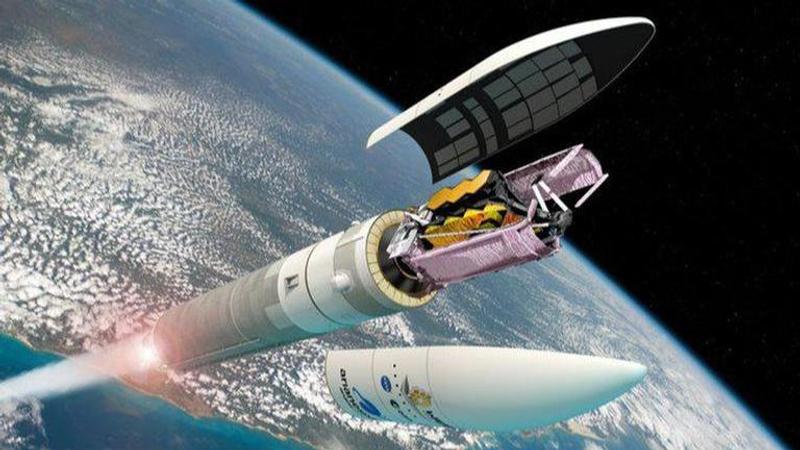Published 23:26 IST, December 20th 2021
James Webb Space Telescope's 1st 'phonecall' post launch; ESA explains the process
According to the ESA, the 10-metre antenna in Malindi, Kenya, which is a part of ESA’s Estrack cooperative network, will make first contact from the ground.

The James Webb Space Telescope is due for launch on December 24 following which it will head towards its target orbit which is more than 1.5 million kilometres from Earth. Needless to say, the proper execution of the Webb telescope’s liftoff is important and so is making the first contact once it is out there in space. The European Space Agency, which is one of Webb’s developers apart from NASA and the Canadian Space Agency, explains how it is ready to pick up the call after Webb makes its first ‘phone call’ home.
Here’s how ESA will make contact with the telescope
According to the agency, the 10-metre antenna in Malindi, Kenya, which is a part of ESA’s Estrack cooperative network, will make first contact from the ground. Soon after its launch aboard the Ariane 5 rocket, the telescope will send its first message that will appear as a peak in radio waves on a monitor at the Malindi Ground Station. It will be through these signals, that the scientists will get an idea of Webb's health after the launch and also will be the only means of sending commands and bringing data home.
(Image: ESA)
"About 23 minutes after lift-off, Malindi will locate the Ariane 5 launch vehicle in flight, rising above the Western horizon, still housing its precious cargo. Only five minutes later, Webb will separate from the rocket and begin its solo life in space", ESA said in its report. As you can see in the image above, the Malindi station's position at the equator is in line with Webb's launch site, the spaceport in Kourou, French Guiana. The rockets get an extra boost from the speed of Earth’s rotation if they are launched from this location, as per the agency.
In order to pick up the first signals sent by the telescope, Malindi will undergo three phases of visibility with the mission. For the first hour after separation, which will be the first phase, the station will be in a ‘private call’ with Webb following which NASA’s Deep Space Antenna in Canberra will join the call and Malindi will switch to backup (second phase). Finally, in the third phase, Malindi will again take over again after Webb is no longer visible from Canberra, Australia, and will then be joined in by NASA’s Madrid station. Daniel Firre, ESA’s Ground Operations Manager, said as per ESA's statement,
We may lose signal momentarily some minutes after Webb separates from Ariane 5, and at that time we will switch from launch vehicle tracking to spacecraft tracking.
Image: Twitter/@ESA_Webb
Updated 23:26 IST, December 20th 2021




